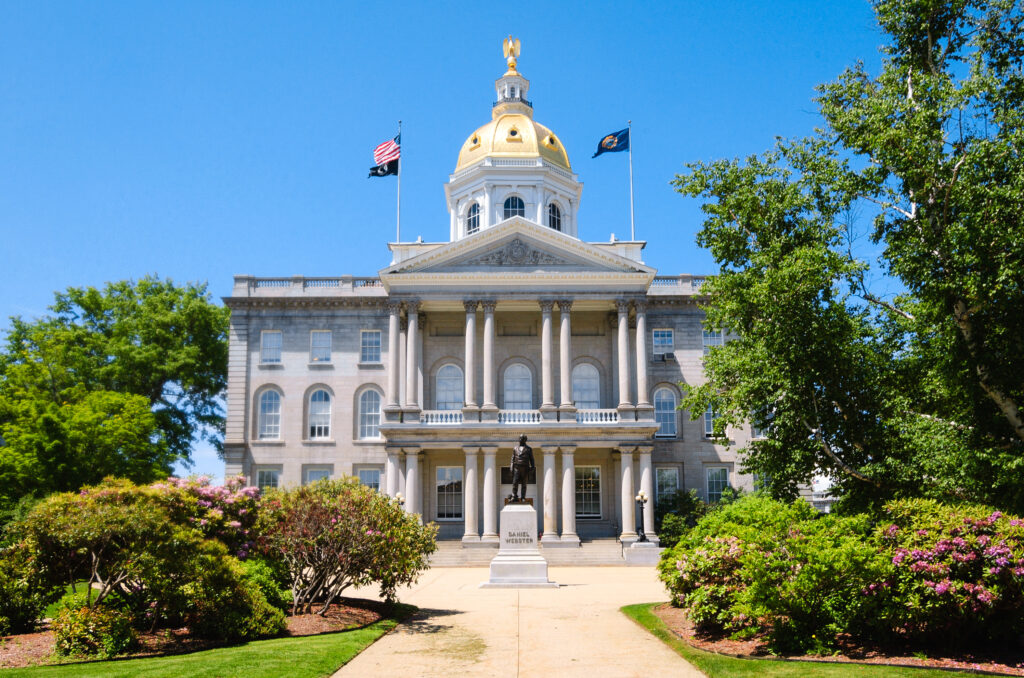By New Futures
In New Hampshire, proactive legislation is a great tool for improving access to behavioral and mental health services for children, youth, and families. Legislation, however, can also attempt to limit access to these needed services.
The 2024 Legislative Session kicked off on January 3, and two concerning themes are taking shape: attacks on LGBTQ+ youth, and attacks on emotional wellness in schools.
The good news is that it isn’t all bad news! There are multiple bills filed that would have a positive impact on children, youth, and families in the Granite State. One piece of legislation aims to increase access to emergency behavioral health supports and wraparound services for youth, while another looks to expand the right to an attorney for children in abuse and neglect cases. Here are a few other bills to keep an eye out for this session.
Anti-LGBTQ+ Legislation
Continuing the trend that has emerged over the past few years, many bills targeting LGBTQ+ youth have been filed for the 2024 session. Several bills prohibit the use of preferred pronouns and names in schools. There are also several bills that have been filed limiting parents’ abilities to get necessary medical care for their transgender children. These bills would have dangerous consequences for transgender youth, as we know that when LGBTQ+ children feel unsupported at home, at school, and in their communities, they have higher rates of anxiety, depression, self-harm, and suicidal ideation.
Research is clear though: LGBTQ+ children have mental health outcomes on par with their straight and cisgender peers when they feel supported. Advocating against bills like these is a critical way to show support for the LGBTQ+ community in New Hampshire.
Emotional Wellness in Schools
Schools have always been spaces for children to not only learn the core subjects, but to interact with one another and learn how to be members of a community. Social learning is a critical component to education. Further, schools that implement programs to improve social interactions among students and promote emotional wellness also see improved academic achievement, reduced dropout rates, and increased college attendance. Several bills in the upcoming session look to undermine social learning in schools. It is imperative that advocates use their voices to educate our legislators on the importance of this critical component to education.
Insurance Coverage for Wraparound Services
Currently, children in New Hampshire with private health insurance may not have emergency mental health services and wraparound services covered. For wraparound services, the state pays for children with private insurance to receive this treatment if they don’t otherwise qualify for Medicaid. However, if private insurance carriers were to pay for these services, the funds that the state currently expends to pay for these children could be used to strengthen the System of Care elsewhere. SB 411 adds clear definitions to these services to ensure that all children, regardless of carrier, have coverage for these essential services.
Expanding Access to Court-Appointed Counsel for Children in Dependency Proceedings
New Hampshire is one of only six states that do not guarantee the right to an attorney for children in abuse or neglect cases under any circumstances. However, appointment of an attorney for children is a nationally recognized best practice and has been shown to result in better outcomes for the children, such as less time in foster care or group settings, shorter time to adoption or guardianship, and more successful reunification. These outcomes mean children have more time in their communities and, in turn, better access to mental health services.
SB 463 mandates the appointment of an attorney to represent the expressed interests of a child in a child protection case who is placed or at risk of placement in a congregate care setting. It also permits an attorney to be appointed at any point in a child protection case, at the request of the child. Together, these provisions are a step toward ensuring that New Hampshire’s most vulnerable children have adequate representation in their abuse and neglect cases.
Ending Childhood Hunger
SB 499, commonly referred to as the End Hunger Act, addresses food insecurity in New Hampshire by removing administrative barriers to accessing Federal Nutrition Programs ensuring more children are able to access meals in school and during the summer.
How to Take Action
In New Hampshire, every bill filed has a public hearing. The public hearing is your opportunity to have direct input on the future of a bill. There are three ways to participate in a public hearing: remote sign-in, written testimony, and testifying in person. You can also contact your legislators via phone or email on an issue you care about. To learn more about bills affecting youth in New Hampshire, visit new-futures.org.
